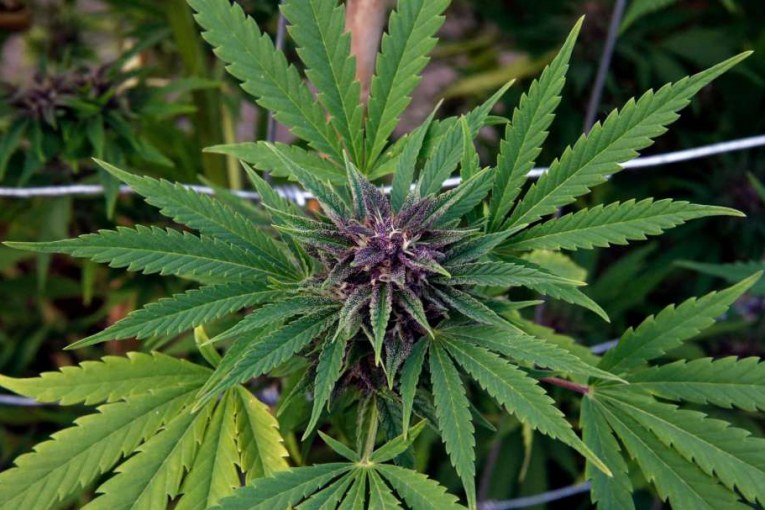

Yesterday, on May 18, 2017, the city of Davis ordinance for personal use and cultivation of cannabis, both indoor and outdoor, became effective after it was adopted by council a month ago.
Under consideration on Tuesday will be three commercial licenses: manufacturing, testing and distribution.
The current ordinance will consider whether “to establish the zoning districts where manufacturing uses involving volatile and non-volatile substances will be permitted or conditionally permitted.” It would further establish “the zoning districts where testing will be permitted” as well as Research and Development uses. Finally, it will establish “the zoning districts where distributing uses will be conditionally permitted.”
According to staff, “Should Council adopt the proposed Ordinance, all other commercial cannabis businesses not expressly permitted will be prohibited until authorized by the City Council.”
According to city staff, the proposed ordinance would have “regulatory authority over cannabis uses consistent with State law” by adding “commercial cannabis manufacturing, testing, research, and distribution uses as permitted or conditionally permitted uses in zoning districts already established for such purposes.”
Such uses would be permitted in industrial zones and planned development districts but not in residential areas. There would be a mandatory 600-foot buffer between these businesses and uses such as schools, day care, or places where children congregate.
Staff believes, based on proposed uses, “the buffer is not necessary as existing zoning appropriately establishes a separation of uses to avoid potential conflicts with incompatible uses related to manufacturing, testing, research businesses, and distribution uses.
“The 600-foot buffer may be appropriate for dispensaries, which will be addressed in future ordinances; however, cannabis related manufacturing, testing, research, and distribution uses do not include retail sales to the public, and are limited to wholesale uses, and storage and distribution.”
Staff argues that, because these uses occur in enclosed buildings where the public will not be purchasing products or congregating, there is no need for such a buffer.
“The ordinance does not authorize any other cannabis businesses except those expressly permitted,” staff writes. “Individual CEQA analysis for commercial cannabis manufacturing, testing, research and development and distribution businesses will be determined on an individual project basis pursuant to the standard planning review process applicable to conditional uses.”
The proposed ordinance permits three specific activities. Cannabis manufacturing refers to the “compounding, blending, extracting, infusing, or otherwise making or preparing a cannabis product” and “expressly includes the production, preparation, propagation, processing or compounding of cannabis or cannabis products directly or indirectly, including through extraction and/or chemical synthesis methods.”
“Cannabis manufacturing may include distribution of wholesale products from the premises, but shall not include any retail sales of cannabis or cannabis products or other sales to consumers,” according to city staff.
Cannabis laboratories and research refers to “a laboratory, facility, or entity that offers or performs tests or testing of cannabis or cannabis products.” This can include things like “start-up or incubator research activities, which typically include but are not limited to research, design, analysis, development and/or testing of a cannabis product, and laboratories or facilities engaged in scientific research studies, investigation, testing or experimentation, but not including cannabis manufacturing or sales of cannabis.”
Finally, cannabis distribution facility refers to “any facility engaged in the procurement, temporary storage, non-retail sales, and transport of cannabis or cannabis products between State-licensed cannabis businesses, including warehouses and similar structures.”
Commercial cannabis manufacturing could include the use of either non-volatile and volatile substances, and this would depend upon the product and manufacturing process. Under existing zoning code, “a Conditional Use Permit is required for any business that handles hazardous materials in aggregate of more than five hundred pounds, fifty-five gallons, or hundred cubic feet in gaseous state at standard temperature and pressure a year. Any use involving volatile or hazardous substances that exceed this threshold would be subject to stringent safety standards and conformance to applicable provisions of Article 40.24.”
If the council, as expected, approves the ordinance, there would be a second reading scheduled for June 6, 2017, with the ordinance going into effect on July 6, 2017.
Future items include a June 20 discussion on Cannabis Business Licensing Fees and Measure C rates. A July 11 item will be on Dispensaries and Commercial Cultivation.
Staff recommends that “the City Council adopt the proposed ordinances adding a new Article 40.26B (Commercial Manufacturing, Research and Development, Testing, and Distribution Businesses regulating activities related to commercial manufacturing, research and development, testing, and distribution businesses, and minor amendments to Article 40.31A (Administrative Use Permits) to clarify that the requisite findings broadly apply to any cannabis use subject to an Administrative Use Permit.”
—David M. Greenwald reporting
